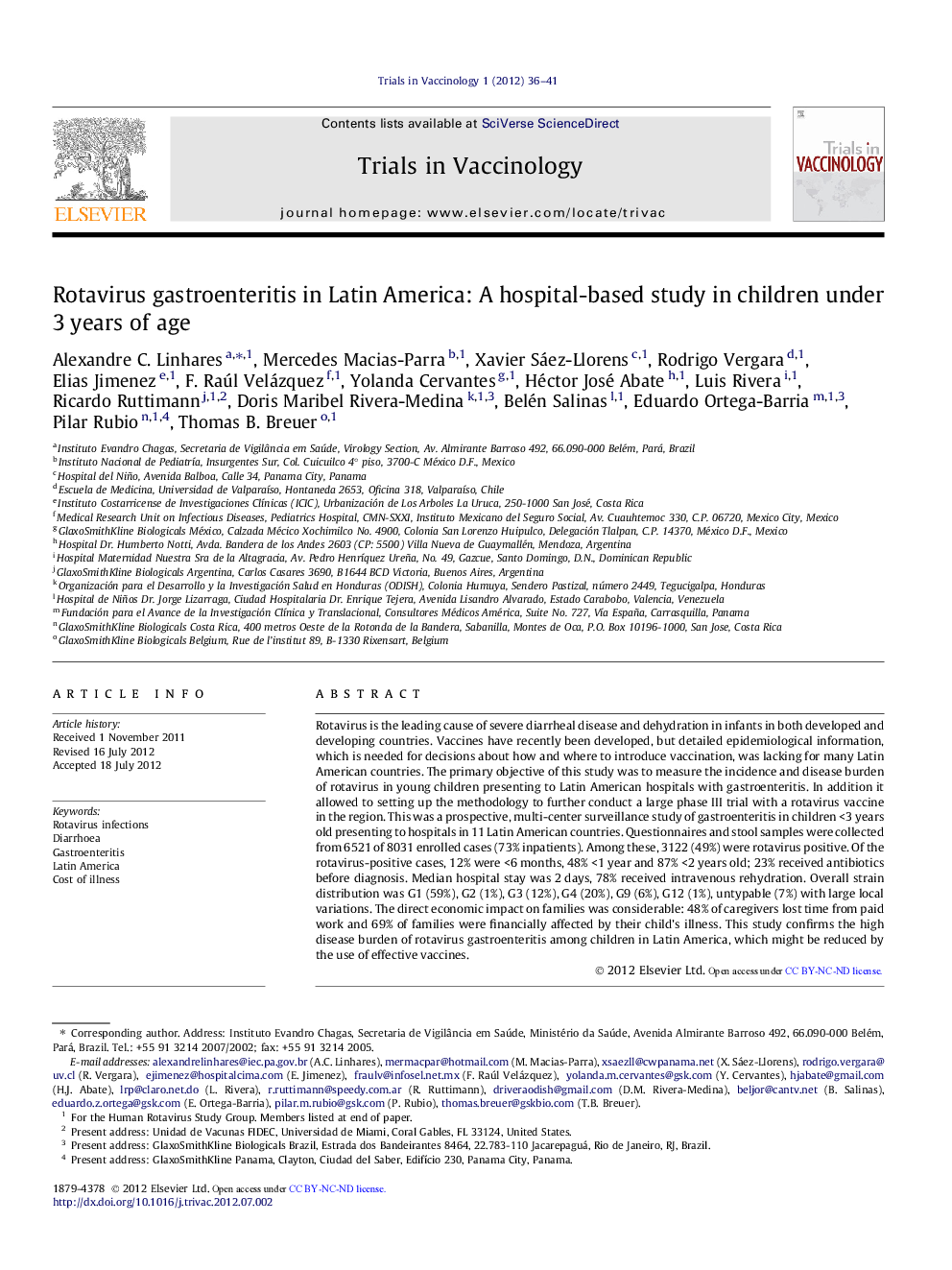| Article ID | Journal | Published Year | Pages | File Type |
|---|---|---|---|---|
| 2474391 | Trials in Vaccinology | 2012 | 6 Pages |
Rotavirus is the leading cause of severe diarrheal disease and dehydration in infants in both developed and developing countries. Vaccines have recently been developed, but detailed epidemiological information, which is needed for decisions about how and where to introduce vaccination, was lacking for many Latin American countries. The primary objective of this study was to measure the incidence and disease burden of rotavirus in young children presenting to Latin American hospitals with gastroenteritis. In addition it allowed to setting up the methodology to further conduct a large phase III trial with a rotavirus vaccine in the region. This was a prospective, multi-center surveillance study of gastroenteritis in children <3 years old presenting to hospitals in 11 Latin American countries. Questionnaires and stool samples were collected from 6521 of 8031 enrolled cases (73% inpatients). Among these, 3122 (49%) were rotavirus positive. Of the rotavirus-positive cases, 12% were <6 months, 48% <1 year and 87% <2 years old; 23% received antibiotics before diagnosis. Median hospital stay was 2 days, 78% received intravenous rehydration. Overall strain distribution was G1 (59%), G2 (1%), G3 (12%), G4 (20%), G9 (6%), G12 (1%), untypable (7%) with large local variations. The direct economic impact on families was considerable: 48% of caregivers lost time from paid work and 69% of families were financially affected by their child's illness. This study confirms the high disease burden of rotavirus gastroenteritis among children in Latin America, which might be reduced by the use of effective vaccines.
